Thursday Feb 19, 2026
Thursday Feb 19, 2026
Monday, 1 February 2016 00:00 - - {{hitsCtrl.values.hits}}
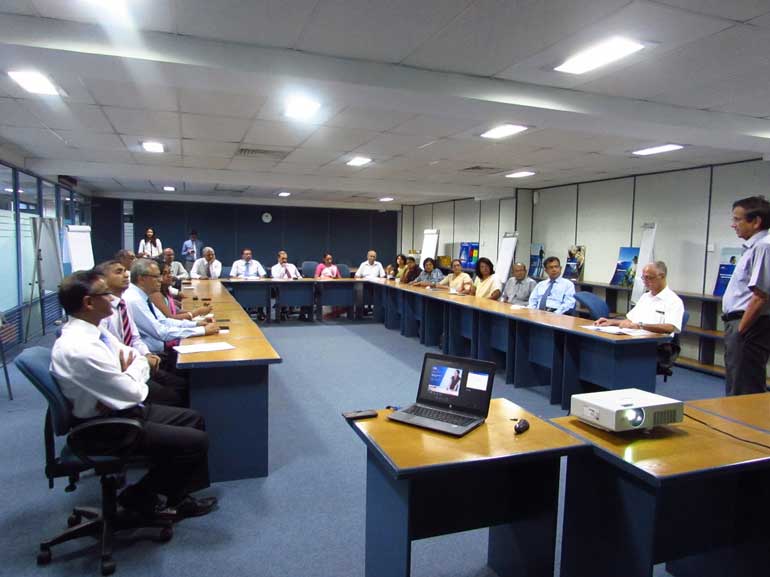
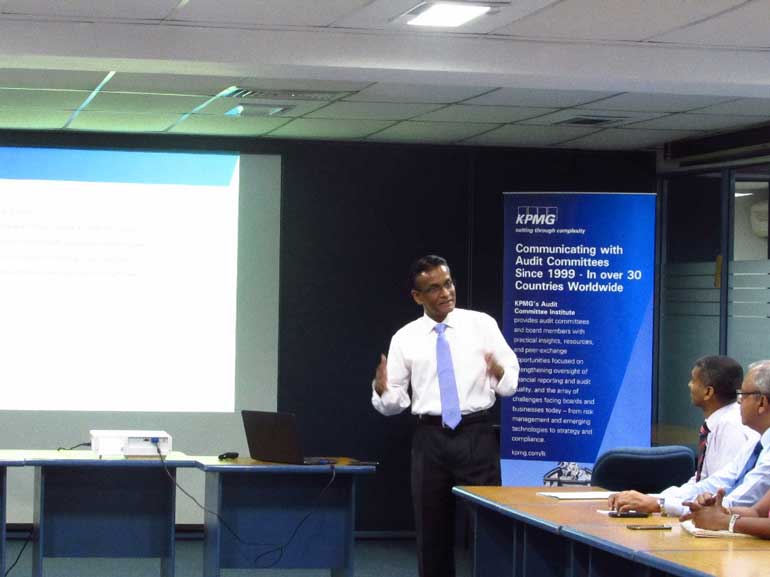
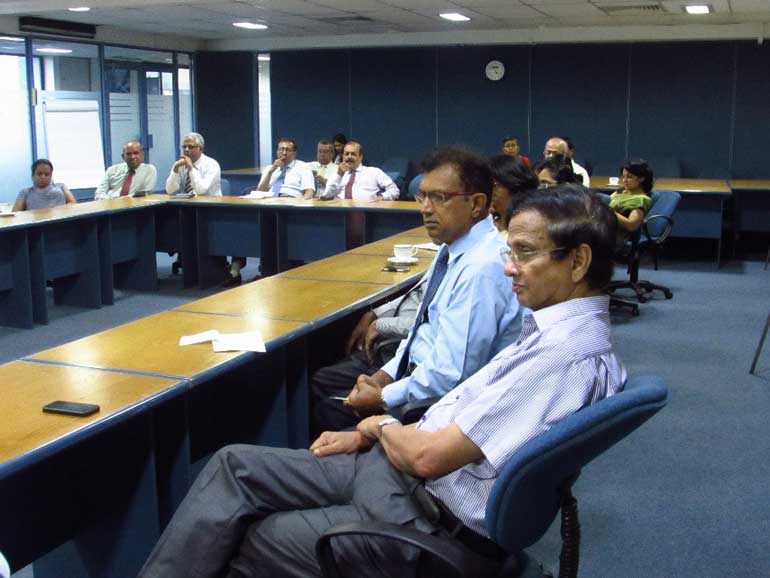
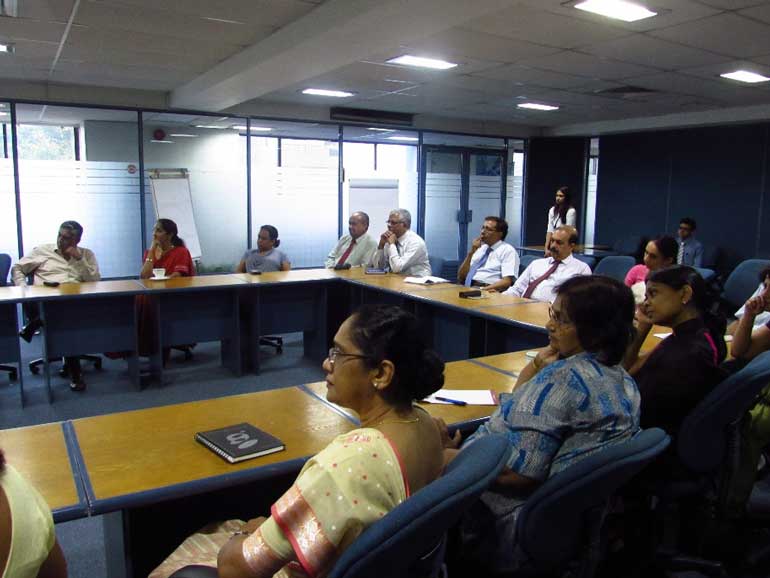
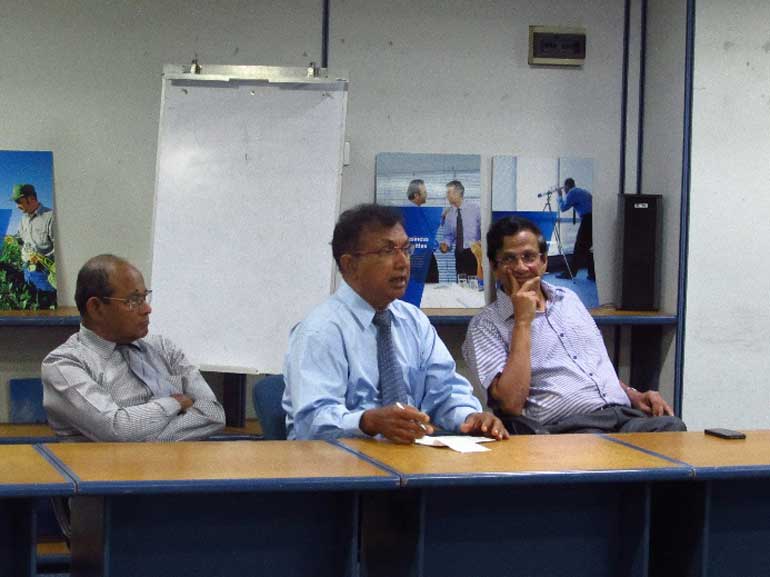
Instances of corporate fraud and misconduct have remained a constant threat to public trust and confidence in capital markets. Over the past few years rapid technological advancements have created opportunities to commit fraud as well as innovative ways to perpetrate fraud and get away with it. As a result, Boards are faced with considerable challenges in dealing with these issues, and Audit Committees are expected to take on an active role in addressing same.
In light of this, the Audit Committee Forum organised its 7th evening roundtable discussion on 19 January to highlight key considerations that can help Audit Committees in the detection and deterrence of fraud.
In welcoming participants, Rasakantha Rasiah spoke of two cases of fraud in Sri Lanka and of the management’s expectations of the finance professional’s role in preventing fraud. Building on this platform in his presentation, KPMG Partner and Head of Audit Suren Rajakarie provided further insight into local and global fraud.
“The opportunity for fraud stems from ineffective oversight by management and a weak control environment which facilitates fraud. This is putting extensive pressures on Boards and Audit Committees, and they are looking for help from internal and external auditors,” he said.
The presentation included case studies from high profile frauds such as Satyam, AIG, Parmalat, Enron, Lehman Bros, Worldcom and Waste Management, underscoring the reality that in many instances fraud involved the top management. Yet the general reaction to such frauds is often ‘This is so basic. Why was it not detected earlier?’ The participants noted that their roles in Audit Committees are rapidly increasing; fraud puts pressure on them to assume responsibilities well beyond their traditional duties.
Suren’s presentation was followed by a discussion, where forum members noted that weak internal control often showed insufficient focus on journal entries and inadequate segregation of duties.
It was pointed out that an effective internal control environment should focus on the Control Environment, (including Integrity, Ethical Values and HR Policies and Procedures - the latter including rotation and compulsory leave-taking and rigorous recruitment processes) Control Activities, Risk Assessment, Information and Communication and Monitoring.
This can be supported by internal control health checks, use of data analytics, fraud risk management policies and whistle-blowing policies.
The following matters were further discussed.
The forum also discussed the use of data analytics, building on the significant efficiency in automated systems to monitor fraudulent or suspicious behaviour. Using technology to test transactions could be extended to the entire population, and multiple angles can be tested. Members recognised that by using data analytics, companies could design tests to identify potentially fraudulent behaviour and thus prevent fraud.
The meeting concluded with Anthony Jayaranjan thanking Suren Rajakarier for his enormous input as a facilitator of the forum’s discussions, and by appreciating KPMG’s support of the initiative since its inception.
Commenting on the roundtable discussions, Richard Ebell, who has served as convenor of the forum, said, “The initiative which was born in mid-2014 has gained encouragingly in momentum thanks to the support of KPMG, SLID, the Institute of Chartered Accountants, other accounting firms, and not least, the enthusiasm and energy of its members.“
The Audit Committee Forum hopes to conduct its next roundtable discussion focusing on the topic ‘IT for Audit Committees’.